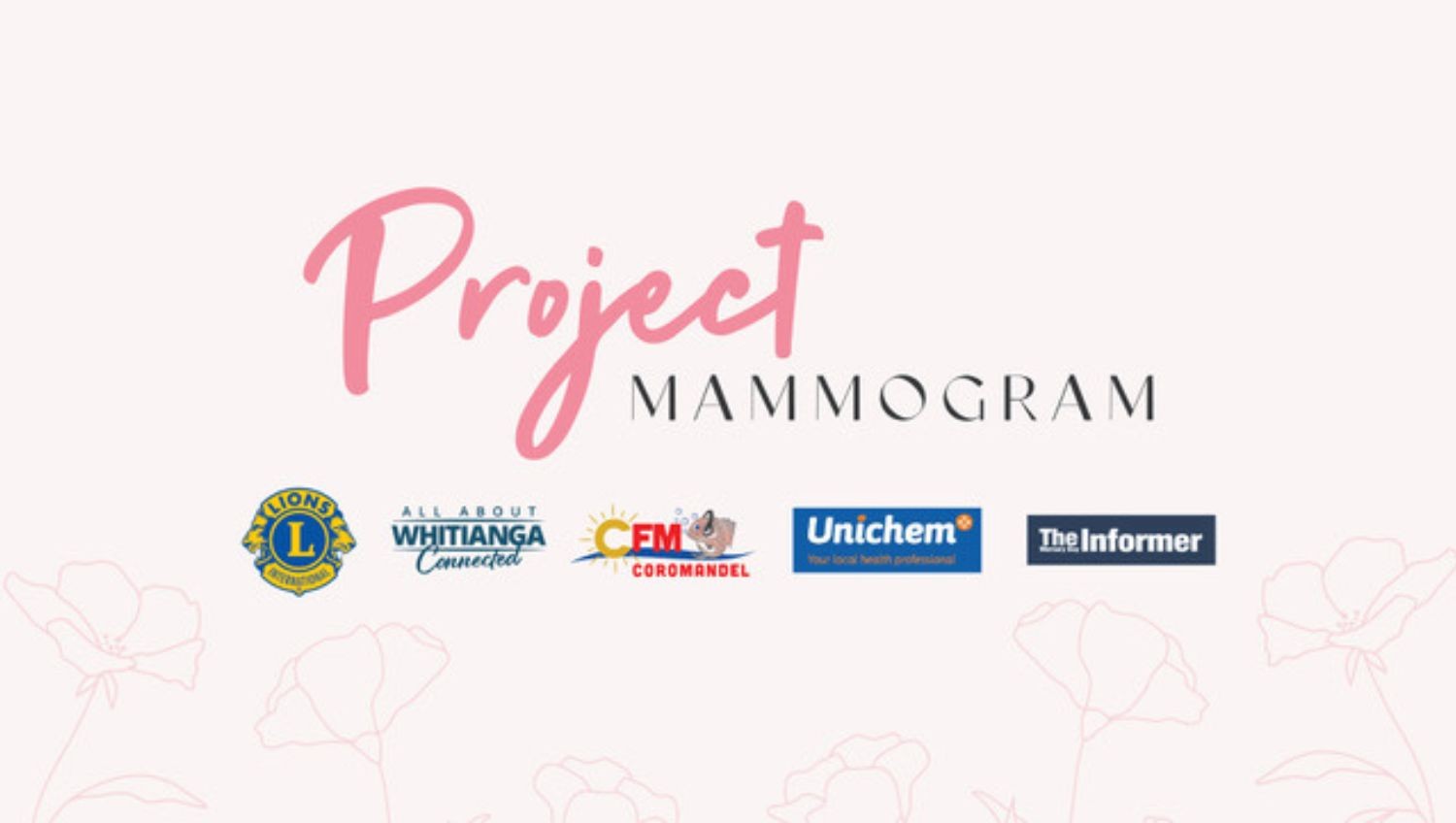- Stories
- Health & Wellbeing Stories
- World Dense Breast awareness day – Pink Buns being sold to fundraise for Project Mammogram
World Dense Breast awareness day – Pink Buns being sold to fundraise for Project Mammogram

How many women know if they have dense breasts? Does knowing matter? September 27 is World Dense Breast Day and while highlighting its significance in relation to breast cancer, Whitianga Lions Club also see it as a way of raising money towards Project Mammogram where they aim to purchase a 3D mammogram machine for the Eastern Coromandel region. Learn more about dense breasts and where to get a Pink Bun to help with fundraising for Project Mammogram.
Help us get the word out!
If you like this article, please share it!
What are Dense Breasts?
Now, back to dense breasts; I have to admit that I knew nothing about them despite having regular mammograms and I’m also wondering why I have never been told about the risks associated with dense breasts during my mammograms.
Dense breasts are normal and common. About 50% of women in their 40s have them; 40% in their 50s and 25% in their 60s.
Women’s breasts are made of fat and glands that make milk, held together by fibrous tissue. The more glands and fibrous tissue compared to fatty tissue that a woman has, the denser her breast tissue.
Mammograms are effective at identifying breast cancers in the majority of cases in three of the four categories of breast denseness. But in about 10% of women who have extremely dense breasts, cancers are more difficult to detect using mammograms as the high amount of fibrous tissue shows up in a mammogram white, the same as a cancerous breast lump. So the cancers can remain hidden and in some cases cancers may not be detected until the cancer is larger and more advanced.
Why is it important to know if your have Dense Breasts?
Dense breasts also have a higher risk profile for breast cancer. A woman’s risk for breast cancer increases with the level of density in her breasts.
Surely then, every woman having a screening mammogram should have the right to know the density of her breasts. In a number of countries around the world including the United States of America, large provinces of Canada, Western Australia and most recently in South Australia, women will be informed of their breast density category at all screening clinics. The European Society of Breast Imaging also supports the view that European countries should make reporting on breast density mandatory.
In New Zealand, breast density for a breast screening mammogram is only reported on routinely in the private sector.
It’s time for every New Zealand woman having a breast screen to ask, and expect an answer, about her breast density when having a mammogram. If you fall into the category of breast density that increases the risk of cancer not being detected, there are other tests including Contrast Enhanced Mammograms ultrasounds and MRIs or combinations of these that can provide clearer information, earlier detection and better outcomes. Having dense breasts is normal; not knowing your density could mean a later diagnosis of breast cancer with a worse outcome.
What can you do if you want to know your density?
Book a private screening mammogram with a radiology clinic that does mammography and discuss the results with your GP.
If you would like more information, there is a recent webinar on Dense Breasts on the Breast Cancer Foundation website. For more information on the World Dense Breast Day website.
Where to get your Pink Bun on Dense Breast Bun Day
Thanks to our wonderful supporters on the Eastern Coromandel Peninsula the below stores are celebrating World Dense Breast Bun Day on 27th September by selling pink buns and donating a percentage of their profit to Project Mammogram.
If you support them by buying some buns on Wednesday the 27th of September then this will help speed up the process of getting a permanent 3D mammogram machine based in Whitianga making mammography readily accessible to our communities.
You can buy your pink buns from:
- Tairua Four Square
- Whitianga Countdown
- Whitianga Bay Bakery
- Matarangi Four Square
- Coromandel Four Square.

-
{{#owner}}
-
{{#url}}
{{#avatarSrc}}
{{name}} {{/url}} {{^url}} {{#avatar}} {{& avatar}} {{/avatar}} {{name}} {{/url}} - {{/owner}} {{#created}}
- {{created}} {{/created}}











